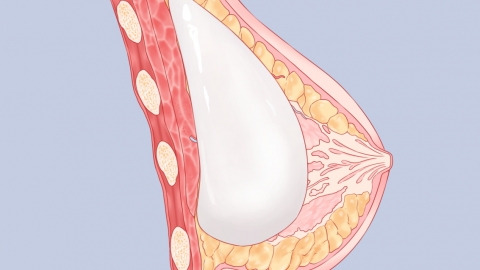How come breast implants sometimes feel soft and sometimes firm?
Breast augmentation through implantation involves enlarging the breast by inserting implants. The general reference price for breast augmentation with implants ranges from 12,000 to 200,000 yuan per session, and noticeable improvement is typically observed within 15 to 40 days. Variations in breast firmness following implantation may be caused by physiological cycle changes, muscular activity, capsule contracture, implant displacement, or infection. Symptoms can usually be improved through general treatment, surgical intervention, or medication. If persistent discomfort or abnormalities occur, timely medical consultation and examination are recommended. Detailed explanations are as follows:

1. Physiological cycle changes: During the menstrual cycle, hormonal fluctuations may cause natural breast tissue congestion and swelling, which can result in variations in the feel of the breasts after augmentation. Typically, the breast condition returns to normal after the menstrual cycle ends.
2. Muscular activity influence: The pectoralis major muscle beneath the breast may exert pressure on the implant during movement, especially during upper limb activity, making the implant feel firmer. When the muscle relaxes, the implant may feel softer. It is recommended to engage in moderate chest muscle exercises to enhance muscle adaptation to the implant while avoiding excessive physical activity that could cause discomfort.
3. Capsular contracture: After implant insertion, a fibrous capsule forms around the implant. If this capsule thickens excessively and contracts, it may compress the implant, causing it to feel hard, and may be accompanied by breast shape abnormalities or pain. Treatment options include capsulotomy or capsulectomy, performed under a physician's guidance, to relieve pressure on the implant.
4. Implant displacement: Instability in the implant's position within the breast may lead to displacement due to external forces or tissue laxity, resulting in uneven breast firmness. Associated symptoms may include breast asymmetry or abnormal texture. Generally, surgical repositioning of the implant to an appropriate location is required.
5. Infection: If an infection occurs after implant placement, inflammation may cause surrounding tissue to swell and harden, resulting in a firm-feeling breast, possibly accompanied by fever, pain, or swelling. If signs of infection appear, immediate medical attention is necessary, and anti-infective treatment should be administered using medications such as Cefotaxime Sodium and Sulbactam Sodium for injection, Levofloxacin tablets, or Amoxicillin granules.
In daily life, patients who have undergone breast implant surgery should follow medical advice, attend regular follow-up appointments, protect the breasts from trauma, and maintain healthy lifestyle habits to ensure optimal breast health.




